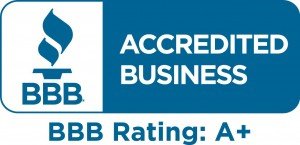
See more information about the report here. Below are some key takeaways from the report:
- A toxic worker is “defined as a worker who engages in behavior that is harmful to an organization, including either its property or people.”
- Some examples of extreme toxic behavior in the workplace are JP Morgan’s employees’ securities fraud in 2012, and workplace violence such as the fatal shooting of Virginia WDBJ-TV reporters by their former colleague.
- Other modest toxic examples were stated to cause “major organizational cost, including customer loss, loss of employee morale, increased turnover, and loss of legitimacy among important external stakeholders.”
- One important feature of a toxic worker is they excel at performance. The reports explain that this is a reason why many employers keep those types of employees on board.
- Further research conducted looked at performance and still found that “avoiding toxic workers is still better for the firm in terms of net profitability, despite losing out on a highly productive worker.” Toxic workers cost a firm more money in the end.
Although the reports discuss the opportunity for companies to rehabilitate those employees who have been identified as toxic, the better approach is to weed out toxic candidates during the hiring process. In reviewing the reports and other recent articles, there are personality traits that a toxic worker has and using the right interview questions will tell you more about a candidate and can help you avoid the most toxic ones.
Here’s the list of traits to carefully evaluate:
- Being Overconfident: Confidence is a great trait, but being over-confident is a red flag for hiring managers since it is also one that is most common in toxic workers. How much is too confident? Does a candidate brag too much? Ask questions around their accomplishments and if they credit other team members or departments. Talk to references who can attest to those accomplishments.
- Complaining: Nothing is more of a blatant warning sign then when a person complains about a previous employer. Open and honest discussions are the perfect way to ferret out people that may be too bitter about their former employers. If you get a toxic worker comfortable during the interview process, they may be more likely to divulge information that will be telling about their true personality.
- Being Self-Centered: A toxic worker is also described as being self-centered. That personality trait can really hurt a company as they will most likely put themselves first over the needs of their job or their company. During the interview process look for telling signs when asking about a challenging project or a volatile work environment.
- Low Integrity: The report featured how some employees made poor decisions like in the securities’ fraud case. The cost of taking on an employee with little honesty or integrity can cost a company substantially. Do your research carefully via the Internet, social media, reference checks, etc….
- Self-proclaimed rule-followers: The report discussed how a self-proclaimed rule-follower is more likely to become toxic workers. Sometimes toxic workers will say anything to get the job. The study revealed that “for those workers who said that rules must always be followed, there was a 25% greater chance he or she would be terminated for actually breaking the rules.”
Keep in mind that the level of toxicity in a work environment was also a factor, whereas employees who were surrounding by another toxic worker, were more likely to become toxic and be terminated.
Most employers understand that hiring or employing a toxic worker is just bad for business. Now with a report like this, you have an even bigger case as to why it’s better to steer clear of toxic workers. Whatever the goals are for 2016, if you’re looking to hire great talent but want to avoid hiring toxic ones, give a call.
ABOUT THE AUTHOR, Ingrid Moore
Ingrid Moore is the Founder and CEO of Corporate Resources of Illinois, an employment & staffing agency with over 20+years’ experience located in Schaumburg, IL. Ingrid and her team assist employers with finding the right hire for their business. For more info, follow us on our LinkedIn Company Page, or follow us Corporate Resources of Illinois‘s Google+ page.




